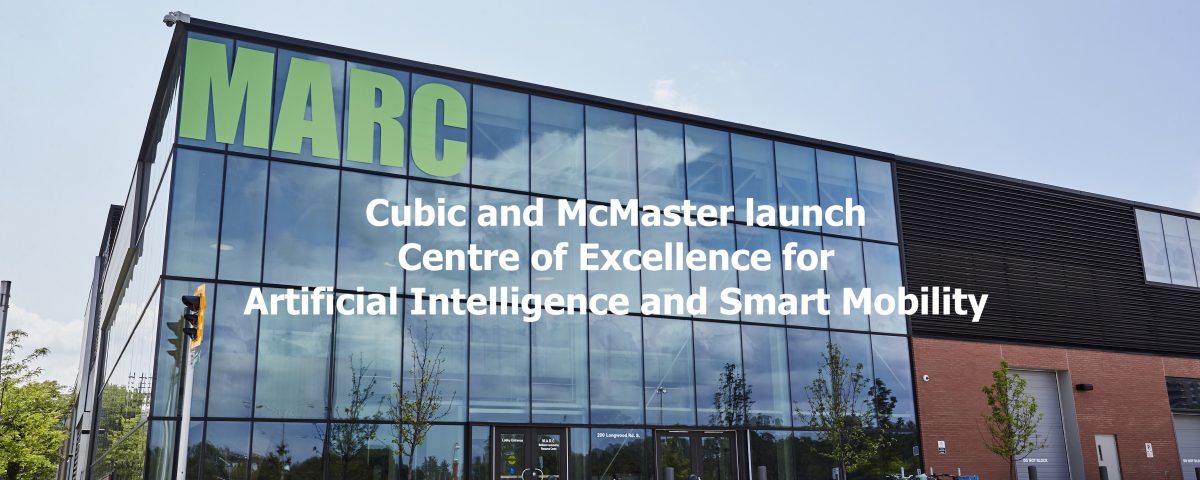Cubic Transportation Systems and McMaster University launch Centre of Excellence for Artificial Intelligence and Smart Mobility

McSCert is collaborating with Cubic Transportation Systems as part of the Centre of Excellence for Artificial Intelligence and Smart Mobility, led by Dr Ali Emadi. McSCert’s role focuses on providing software and safety critical engineering expertise to support activities related to understanding and addressing performance bottlenecks, improving software architecture, and carrying out predictions related to migration to new technology platforms. McSCert researchers are engaged with a number of other research activities as part of the Centre of Excellence and play a foundational role in supporting software engineering activities throughout.
Cubic Corporation’s Cubic Transportation Systems (CTS) business division and McMaster University are partnering to launch the Centre of Excellence for Artificial Intelligence and Smart Mobility. This long-term program will develop the building blocks to design the future of inclusive mobility through innovation and technology collaboration between government, academia, and the public and private sectors. The program will also train the next generation of engineers, scientists, and leaders through hands-on research and product development with public and private mobility service providers.
Experts at the McMaster Automotive Resource Centre (MARC), one of the most extensive transportation research institutes in North America and headquarters of the new centre, and CTS, the leading provider of transportation and traffic management solutions, will work together to address complex issues facing transportation systems through multidisciplinary research and product development.
In addition to developing the future workforce – including undergraduate and graduate students, postdocs, faculty, and research staff – the program focuses on bringing diversity to product development and innovation while designing the future of mobility.
“Creating this Centre of Excellence delivers an ecosystem dedicated to improving the way people move around their towns and cities through the advancement of transportation technology and products,” said Galen Chui, senior vice president of engineering, CTS. “Data analytics, computer vision, and machine learning are our technical areas of focus while our design foundation centers around accessibility and inclusion to ensure mobility works for all citizens.”
In this platform, students will have the opportunity to participate in projects from research through to implementation in areas such as leveraging artificial intelligence (AI) and machine learning (ML) techniques for integrating and controlling smart devices, infrastructure, traffic, and environmental conditions to improve and optimize mobility as a whole. Other research will develop scenario simulations to help build, test, and validate innovations before real-world implementation.
“The partnership between Cubic and McMaster University emphasizes the necessity of incorporating EDI into transportation system development,” said Arig al Shaibah, associate vice-president, equity and inclusion, McMaster University. “Keeping principles of inclusive excellence at the forefront of research projects will drive innovation, and with this partnership, will result in moving toward a future of electrification and automation that is more accessible, sustainable, and better reflects the world and people around us.”
“This initiative speaks directly to Dr. Emadi’s reputation as a leader in the automotive and transportation industry and allows our students and faculty to develop cutting-edge solutions with our partners,” added Karen Mossman, McMaster’s vice-president, research. “This collaboration with Cubic will lead to new and innovative technologies that will both advance the industry and benefit society.”
Uncategorized
